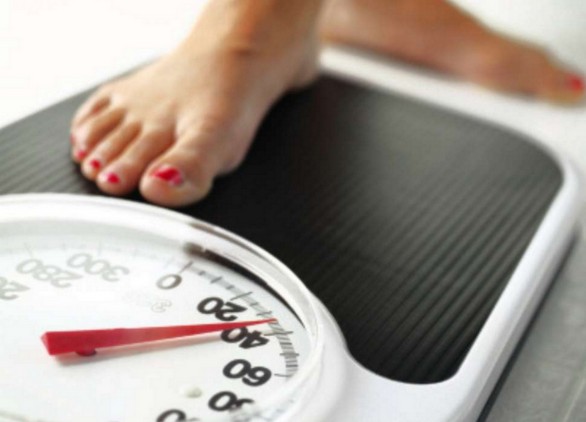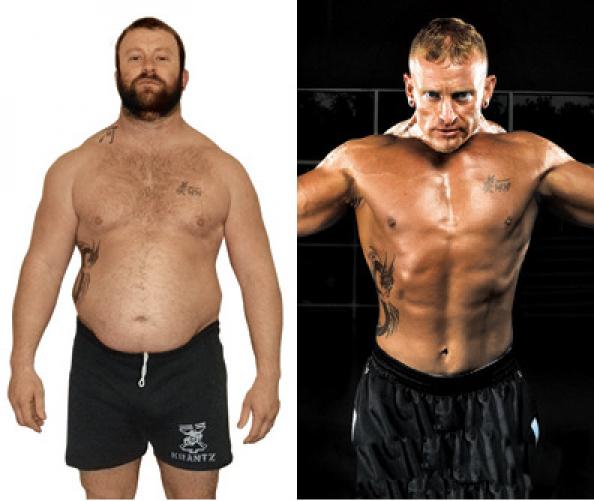More Articles
Motivation
Too skinny?Gain Weight – the right way!
Most people are busy trying to lose weight so if you are one of them trying to gain weight or build up mass, you are going to find yourself in the minority. No wonder we received many requests to cover this topic – so here we

Most people are busy trying to lose weight so if you are one of them trying to gain weight or build up mass, you are going to find yourself in the minority. No wonder we received many requests to cover this topic – so here we go!
The truth is, no one will ever gain muscle without food. Dieting for muscle gain is simply a matter of eating – but eating right! Stuffing your face with the wrong type of food, or just eating 1 or 2 large meals a day isn't the way to gain muscle. You'll just end up with the other weight problems.
So let's first focus on the fundamentals to keep in mind while trying to gain weight:
-
Eat and eat a lot
Simple calculation - You must eat more calories than your body burns off. Wait - it also doesn't give you license to binge on those pizzas and eat just about anything! You have to eat high protein, high quality, nutritious meals and have them at least 6 times a day. If you eat like a bird, you will stay the size of a bird!
-
Protein is the mantra
High quality protein should be the centre point of all meals. Intense exercise increases demand for protein, which supports muscle repair and growth. When training with weights, a minimum of 1.5 grams of protein per pound of bodyweight should be consumed. If you weight 200 pounds, try and take in at least 350 grams of protein each and every day. For skinny people, the body will easily burn off any muscle that is trying to be built unless we have at least 6 high protein meals every single day, and more if possible. The higher rate of metabolism quickly metabolises the intake and feeds off the existing muscle if frequent meals are not provided to the body. A protein calculator has been provided in the tools if you want to calculate your protein needs.
-
Increase Sodium
Sodium is the primary positively charged ion in extra-cellular fluid. Sodium regulates blood volume, acid-base balance, muscle and nerve function and ATP-hydrolyzing activity in skeletal muscle. Sodium thereby not only plays an important role in overall muscle growth by increasing the blood flow but also enhances carbohydrate storage and amino acid absorption also improving the muscle's responsiveness to insulin. Keep in mind that the increase in Sodium in your diet should only be moderate and you must consult your doctor if you have suffered from hypertension or high blood pressure anytime in the past (or do so now) before you plan to do so. Also, sea salt or rock salt is any day a better option than the table salt!
-
Drink plenty of water
Water is the most important element while trying to get the most out of the nutrients being consumed. Water enables proper regulation of food, vitamins, and minerals and helps get the most out of the proteins and carbs by helping the body absorb it.
-
Creatine and other safe supplements
Creatine helps supply energy to all cells in the body, primarily muscle which is achieved by increasing the formation of adenosine triphosphate (ATP). Creatine is often used by body builders to help gain mass. Keep in mind that it is essential to drink plenty of water while having creatine.
-
Cut down on Aerobics
Typically trainers will suggest against any aerobics at all while trying to gain. However, aerobics is important to keep your body flexible and supple. A good 5-10 minutes of aerobics should be sufficient. Any more and you risk on losing on the muscle you are trying to gain.
-
Lift more weights
Lifting heavier weights (with lesser reps) helps build up mass. A typical weight gain workout recommends 7 or less reps so ensure you have ample weight to tire you out in those many reps. However, a good form is important. Do not jerk the motions and lift only as much as your body allows you to do so safely.
-
Rest well
The body needs ample rest to repair the minor muscle ruptures (good) and a 6-8 hr uninterrupted rest is absolutely required.
In subsequent articles, we will explore the best possible sources of proteins (for vegetarians, vegans and non vegetarians) and sample diets for weight gain.
I hope you find the article useful. Please do 'like' and share!
 295
295
How to Exercise With Arthritis and Sore Joints
Exercise helps arthritis pain, but sore joints stop you from wanting to work out. Learn how exercise can improve your range of motion and make all movement easier.

6 High-Fat Foods You Should Be Eating
The body needs some fat -- just not too much. Learn what kind of fat is required by your body.

How to ditch the scale in 30 days
For so many of us who are trying to lose or manage our weight, the scale is our main tool for measuring our progress; unfortunately, we often allow it to measure our self-worth, too. Learn how to stop this obsession!





